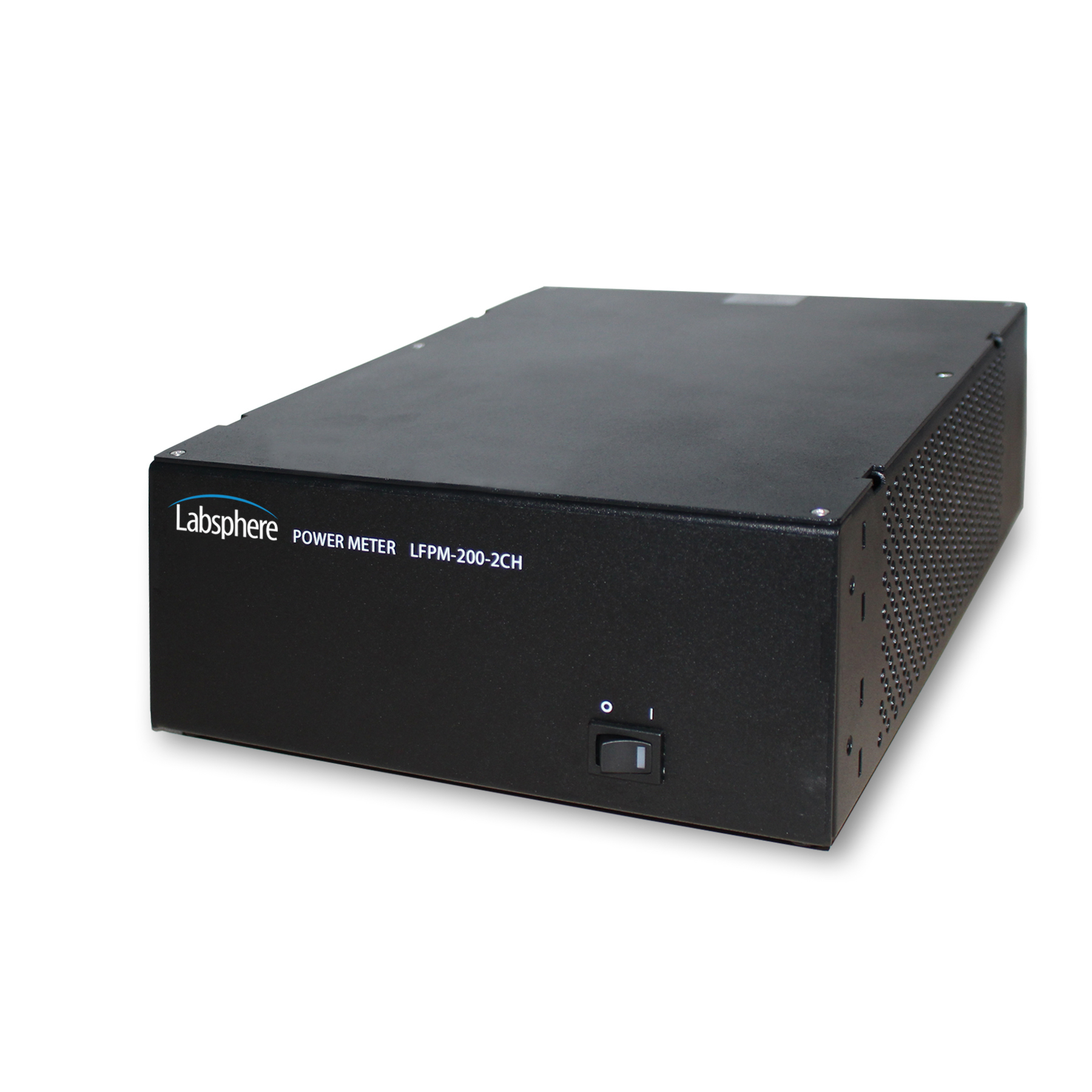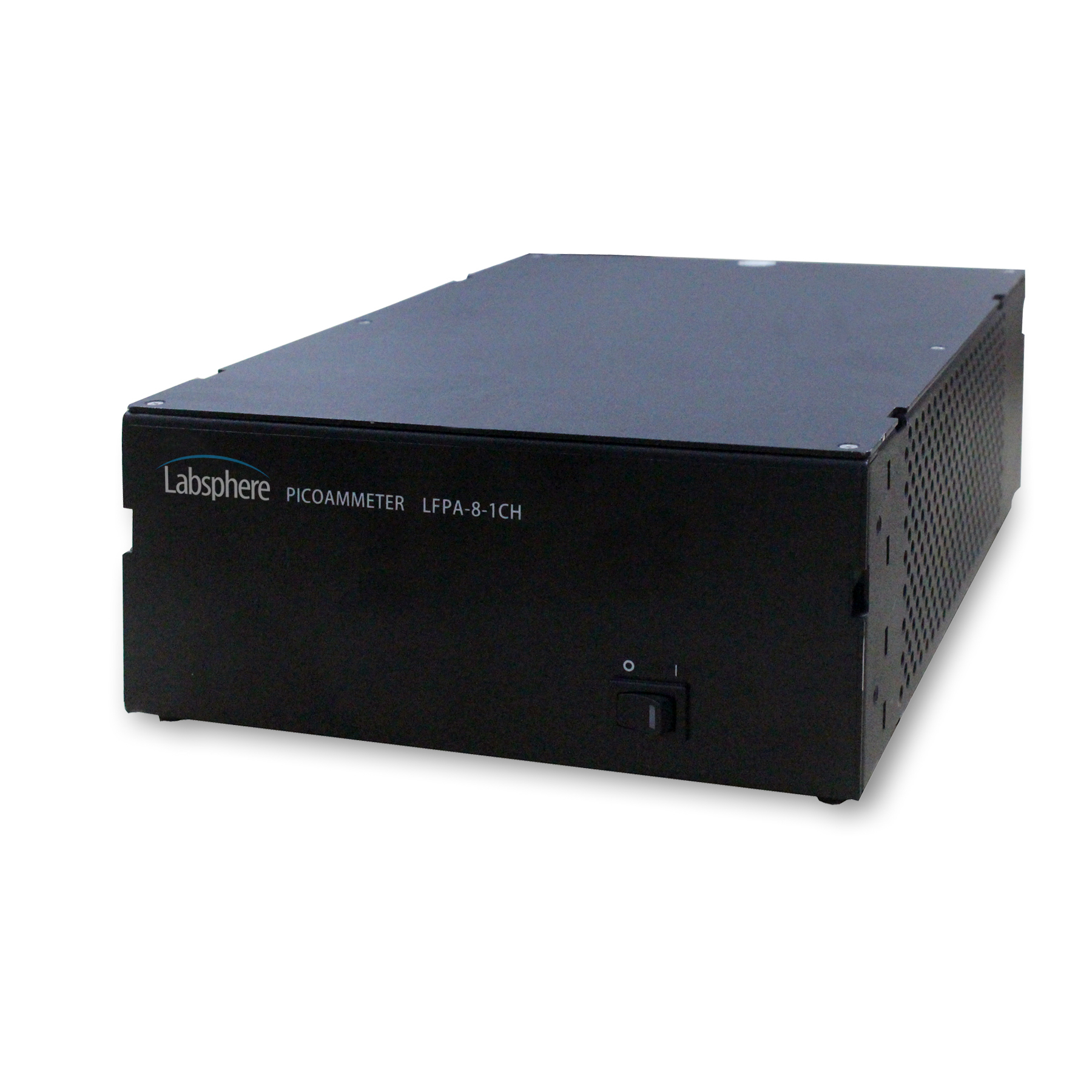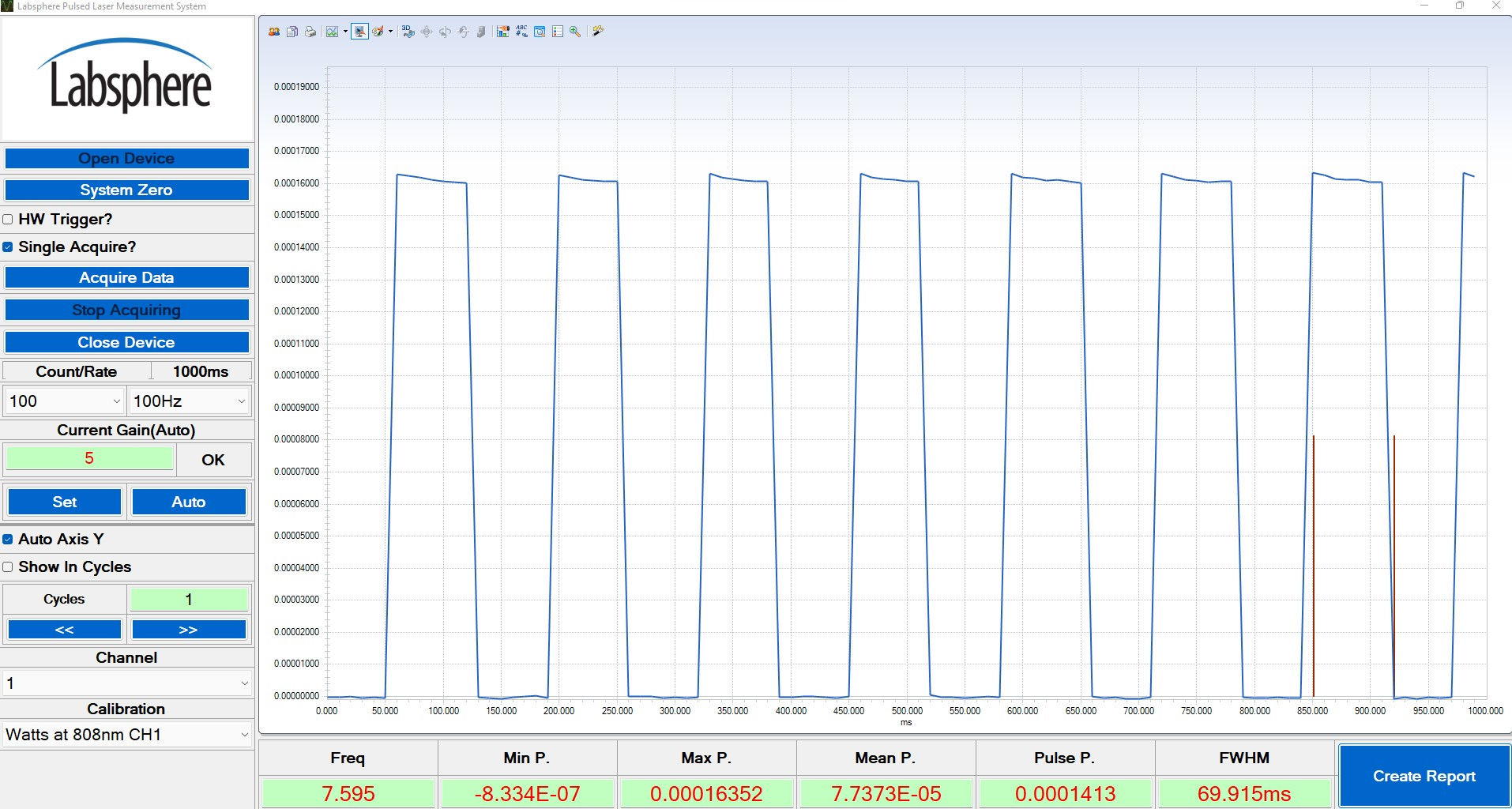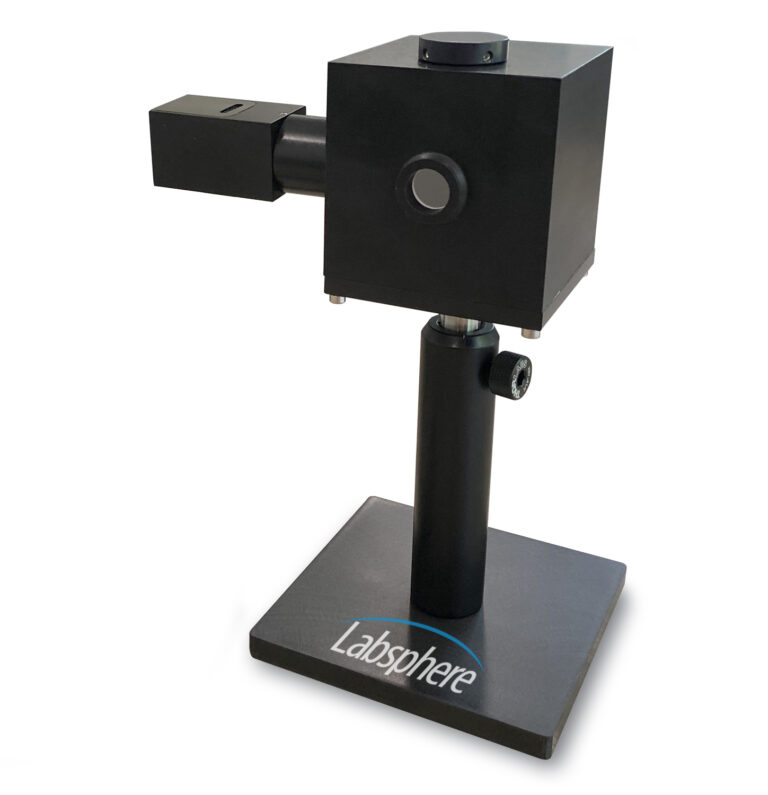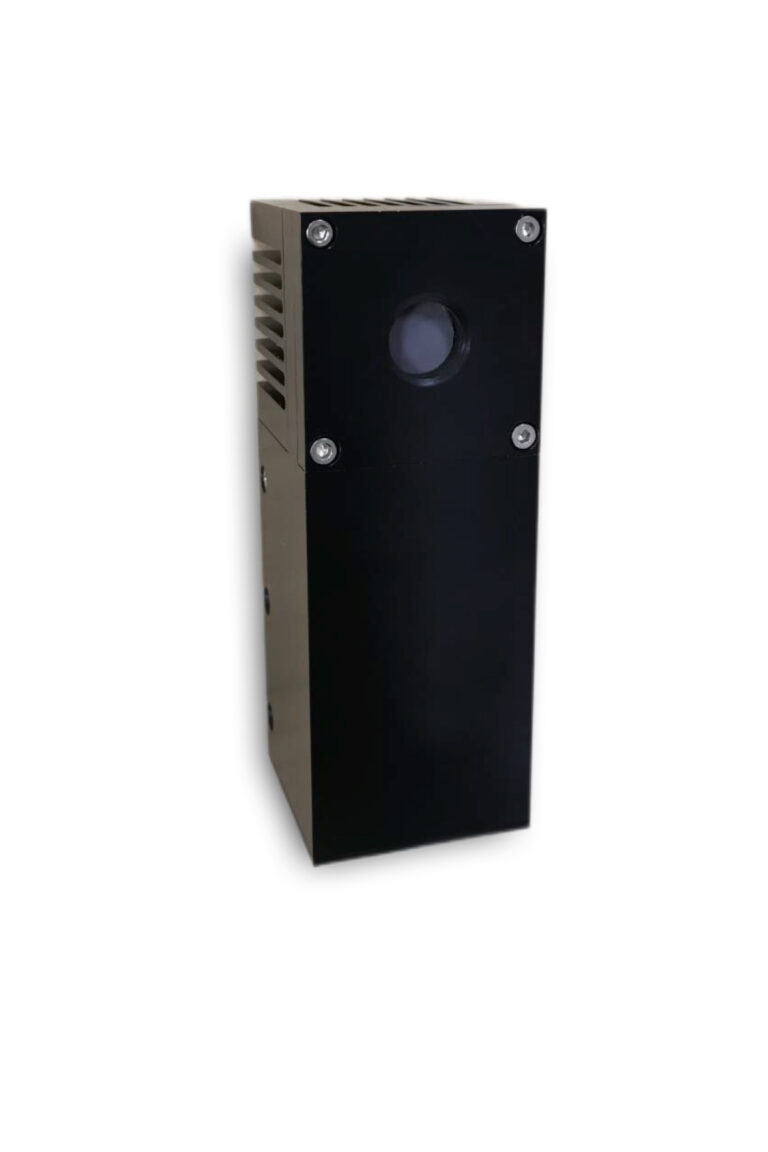Optical Power Meters
Optical Power Meters are used for testing and characterizing laser and laser-based systems. This versatile tool is useful for measuring both continuous and pulsed laser power, meeting the needs of research and development as well. The ability to measure power accurately is crucial in maintaining the performance and safety of optical systems. Optical power meters typically use a calibrated sensor to detect the power of the incident light, converting it into an electrical signal that can be easily read and analyzed. This makes them essential tools in various fields, including telecommunications, fiber optics, and laser manufacturing.
Starting Price
$1,690.00
*Select Product Option First
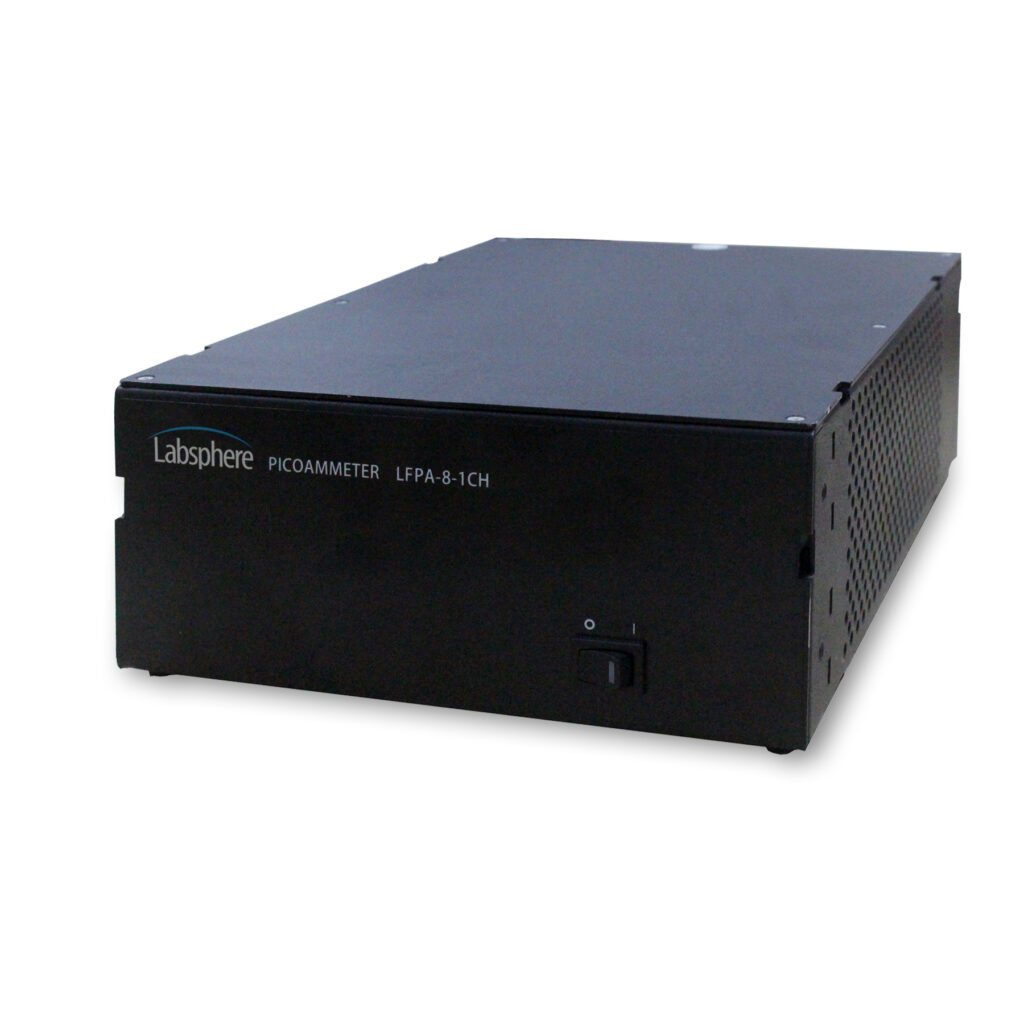
Continuous low current signals
Labsphere’s LFPA-8-1CH is an optical power meter designed specifically for precise measurement of continuous low current signals originating photodiodes for radiometry and photometry of light sources. With features, such as low noise, high dynamic range, and outstanding resolution, the LFPA-8-1CH is capable of accurately measuring signals ranging from picoampere (pA) to milliampere (mA) levels.
• Laser power measurements
• Illuminance of light sources
• Luminance and radiance monitoring of integrating sphere sources
• Luminous flux of light sources
• Reflectance and Transmittance
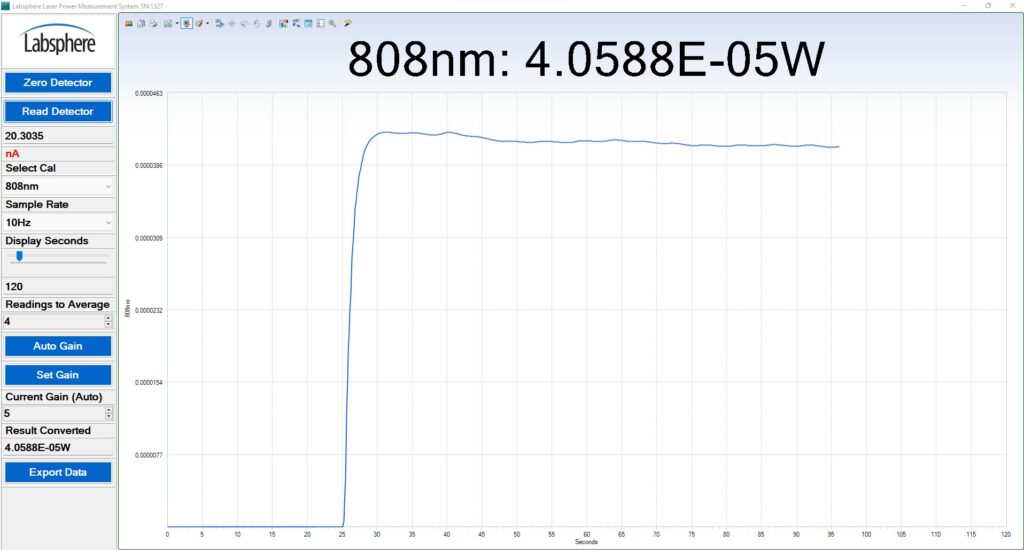
The LFPA-8-1CH is well-suited for a wide range of
applications that involve measuring low currents in
both laboratory and production line settings.
• RS232 based commands. Cross platform ready
• Simple one page software to set all the parameters and read results
• Text based calibration file for easier customer modification
• Dark noise subtraction by software
• Display duration and scans to average can be set by user
• If you need customized software, talk to us
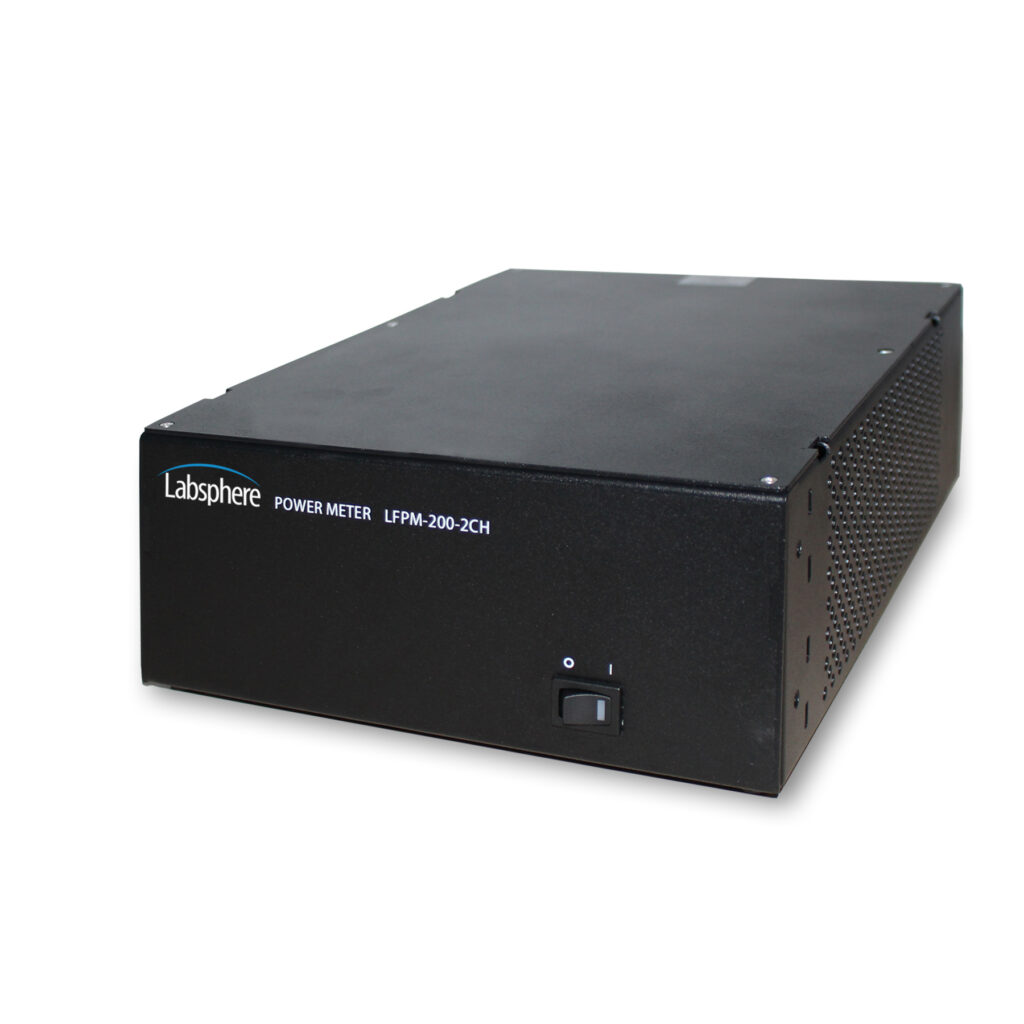
Pulsed and continuous measurements
The LFPM-200K-2CH from Labsphere is a high speed optical power meter designed for the continuous and pulse measurement of photodetector currents. When paired with laser power measurement sphere sensors, it provides a quick and convenient solution for testing and characterizing laser and laser-based systems. This adaptable instrument is valuable for both continuous and pulsed laser power measurement, catering to the requirements of research and development as well as production line applications.
• Accurate and fast data acquisition (Max. 200 kHz)
• Synchronous measurement by external trigger
• High dynamic range (10 E6)
• High ADC resolution (16 bits)
• Powered via USB port
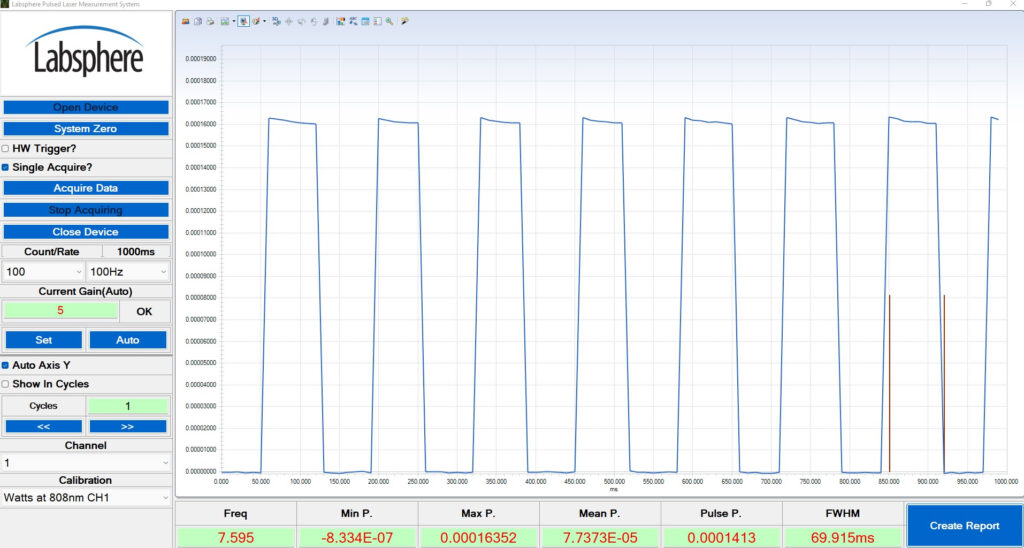
The LFPM-200K-2CH comes with robust software that seamlessly controls the hardware gain, optimizing the readout for the best operational mode. This intelligent feature significantly minimizes the need for manual control and enhances
measurement throughput.
• We can provide SDK in C#/C++/LabView and a Python demo calling C# API
• Simple one page software to set all the parameters and read results
• Text based calibration file for easier customer modification
• Dark noise subtraction by software
• Channel selectable via software
• Easy switch between software and hardware triggers (10 seconds timeout)
• If you need customized software, talk to us
Specifications
LFPA-8-1CH
- Sample Frequency 10 Hz
- Channels 1
- Power and Control USB 2.0
LFPM-200K-2CH
- Sample Frequency 200 kHz
- Channels 2
- Power and Control USB 2.0
FAQs
What is an optical power meter used for?
An optical power meter is used to measure the power of laser and laser-based systems, both continuous and pulsed. It is an essential tool in fields like telecommunications, fiber optics, and laser manufacturing as it helps ensure the performance and safety of optical systems.
How does an optical power meter work?
Optical power meters typically use a calibrated sensor to detect the power of the incident light. This detected light is then converted into an electrical signal that can be easily read and analyzed. This allows for accurate measurement and analysis of optical power.
Why is accurate power measurement important in optical systems?
Accurate power measurement is crucial in maintaining the performance and safety of optical systems. It helps ensure that lasers are operating within their specified power range, preventing potential damage to sensitive components or harm to personnel. Additionally, it aids in troubleshooting and optimizing system performance.
Can optical power meters be used for research purposes?
Yes, optical power meters are widely used in research and development as well. They provide precise measurements for experimental setups involving lasers or laser-based systems, aiding researchers in analyzing and characterizing their devices. Optical power meters are versatile tools that play a critical role in various industries by accurately measuring the power of laser-based systems. Their use extends beyond mere testing, making them indispensable for ensuring optimal performance and safety in optical systems.
What does a laser power meter measure?
A laser power meter measures the power of a laser beam. This includes the total power output, as well as the power distribution across different wavelengths or time intervals, depending on the specific measurement capabilities of the meter. This information is essential for monitoring and controlling the performance of lasers in applications such as communications, manufacturing, medicine, and scientific research. This data can be used to ensure that the laser is operating within its desired power range, optimize its efficiency, and troubleshoot any issues that may arise. Laser power meters are available in various configurations, offering different measurement ranges, resolutions, and features to cater to diverse applications. They are an essential tool for anyone working with lasers, from researchers and engineers to technicians and quality control personnel.
What is the normal range of an optical power meter?
The normal range of an optical power meter can vary depending on the specific model and its intended use. Generally, these devices can measure power levels ranging from microwatts to several watts. However, it is important to note that some specialized power meters may have a narrower or broader measurement range tailored for specific applications. The accuracy and resolution of the power meter also play a crucial role in determining its suitability for different power ranges.
